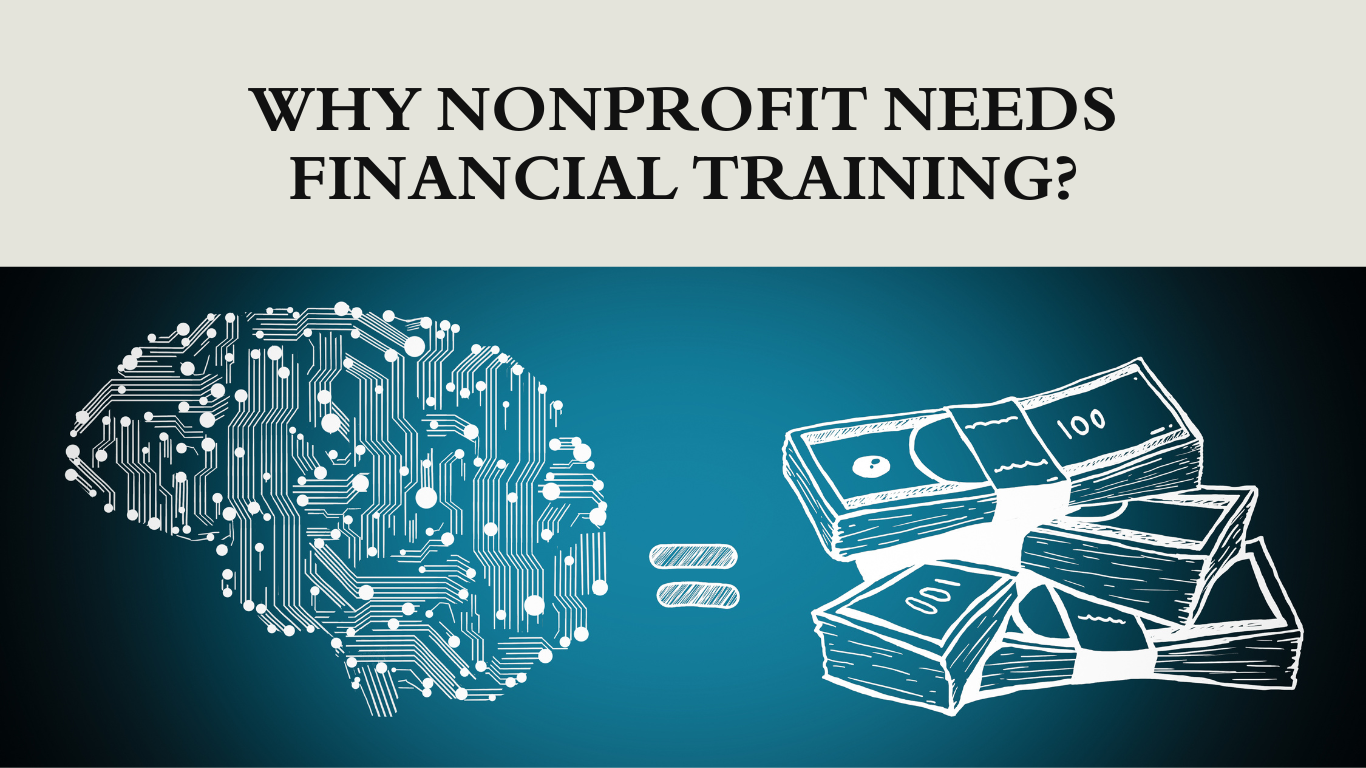Money IQ: Why Financial Training is Important for Nonprofit?
In the heart of every nonprofit's mission lies a vision for change and improvement, yet the pathway to achieving these goals often winds through the challenging terrain of financial management. Understanding the nuts and bolts of finances isn't just beneficial; it's crucial for the sustainability and effectiveness of any organization. This is where financial training comes into play, serving as a beacon of knowledge and empowerment for nonprofit teams. By boosting your team's Money IQ, you're not just enhancing their skills—you're transforming the entire organization's approach to achieving its mission.
The Value of Financial Literacy in Nonprofits
In the nonprofit sector, where resources are often limited and the stakes high, the importance of financial literacy cannot be overstated. A financially literate team is empowered to make informed decisions, steward resources responsibly, and navigate the complexities of nonprofit finance with confidence. Financial training is the game-changer that can elevate your organization from merely surviving to thriving, ensuring that every dollar is effectively harnessed towards maximizing impact.
The Basics of Financial Training for Nonprofit Teams
At the foundation of financial empowerment lies the essentials of nonprofit budgeting. Budgeting is the cornerstone of effective financial management, allowing organizations to plan, monitor, and control their financial resources. Financial training programs must, therefore, cover the basics of budget creation and management, ensuring team members understand how to allocate resources efficiently, monitor expenditures, and adjust plans to meet organizational goals.
However, financial training should not stop at budgeting. It should encompass a broad spectrum of topics, including building a robust reserve fund, a crucial strategy for ensuring financial stability and resilience. A well-informed team can contribute to establishing and maintaining a reserve fund, understanding its importance in safeguarding the organization's future.
How Financial Literacy Empowers Your Team
The benefits of a financially literate team extend far beyond the confines of budget spreadsheets and financial reports. By empowering your team through financial literacy, you unlock their potential to contribute to strategic decision-making, enhance transparency, and foster a culture of accountability. Financial literacy enables team members to see the bigger picture, understanding how their day-to-day activities and decisions impact the organization's financial health and mission fulfillment.
Empowered teams are also better positioned to engage in expanding your financial support system. With a deep understanding of the organization's financial workings, team members can identify new funding opportunities, engage more effectively with donors, and articulate the value and impact of their work, securing the financial resources necessary for the organization's growth and sustainability.
Implementing Effective Financial Training Programs
Developing and implementing an effective financial training program requires careful planning and a commitment to meeting the diverse needs of your team. The program should be designed to be engaging and accessible, utilizing real-world examples, interactive workshops, and practical exercises to bring financial concepts to life.
One critical aspect of financial training is debunking myths about nonprofit overhead. Many team members may carry the misconception that all overhead costs are inherently negative. Financial training provides the perfect opportunity to clarify the role and necessity of overhead in supporting the organization's mission, explaining how strategic investments in administration, fundraising, and infrastructure are essential for long-term success.
The Long-Term Impact of Financial Training on Organizational Success
The long-term impact of financial training on an organization cannot be understated. A financially literate team is a powerful asset in mastering your nonprofit's budget, ensuring that financial resources are maximized and aligned with the organization's mission. Furthermore, regular practices such as monthly financial reviews for nonprofits become ingrained in the organization's culture, facilitating ongoing financial health and adaptability.
Financial training also lays the groundwork for a sustainable approach to financial management. By understanding the importance of building a robust reserve fund and expanding your financial support system, team members can contribute to strategies that ensure the organization's resilience and capacity to navigate future challenges.
Making Financial Training a Priority
In the quest to achieve their missions, nonprofits face a landscape filled with financial complexities and challenges. Financial training stands out as a critical investment—one that pays dividends in the form of empowered teams, strategic decision-making, and enhanced organizational sustainability. By prioritizing financial literacy, nonprofits not only bolster their financial health but also reinforce their commitment to achieving their mission with efficiency and impact.
As nonprofit leaders and teams embark on this journey of financial empowerment, they unlock the potential to transform their approach to mission fulfillment. The path to financial literacy is a journey worth taking, promising a future where organizations are not just financially competent but are also innovating, expanding, and making a lasting difference in the communities they serve.
Ready to transform your nonprofit’s financial management? Book a free consultation with today and discover how we can support your mission-driven goals.

